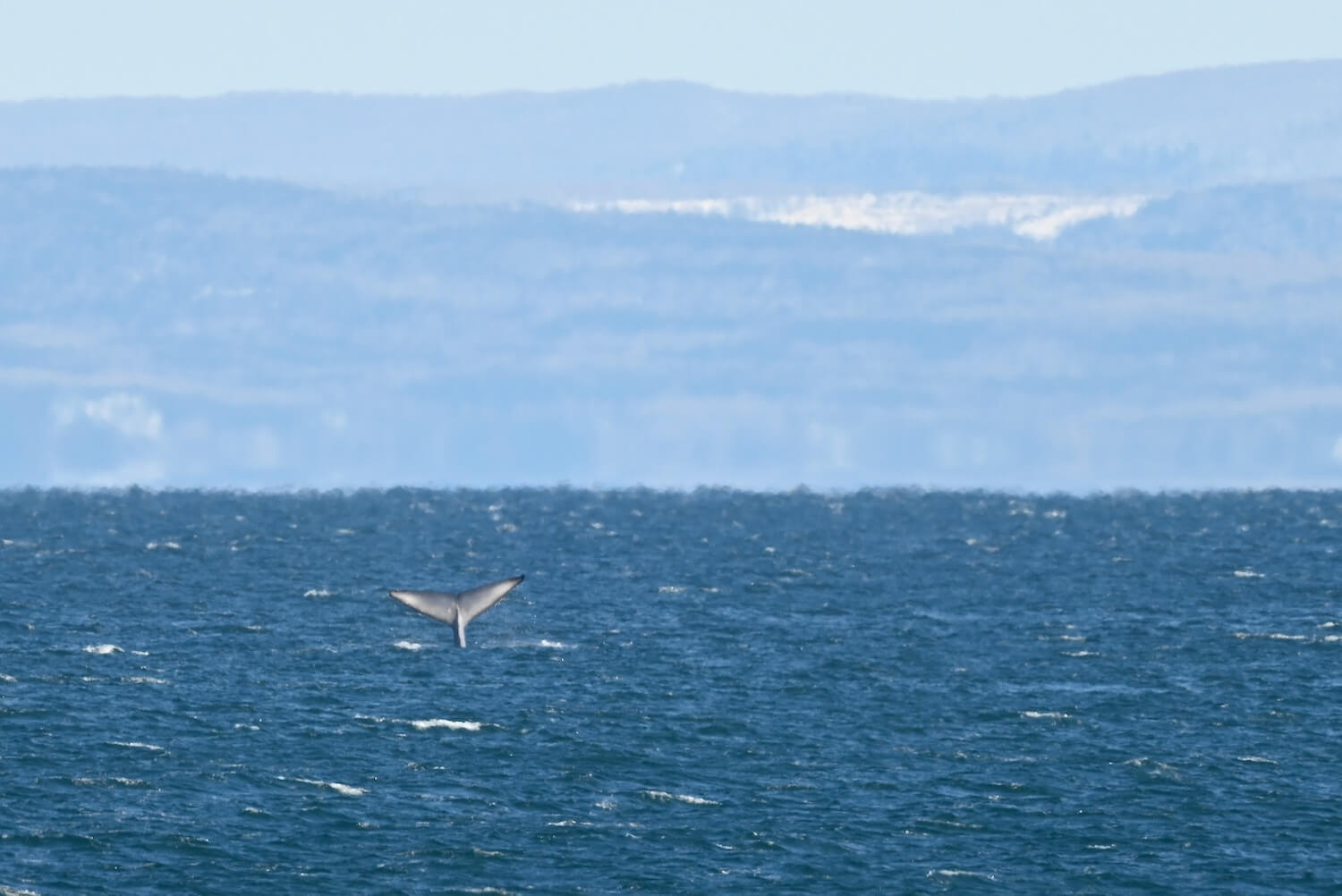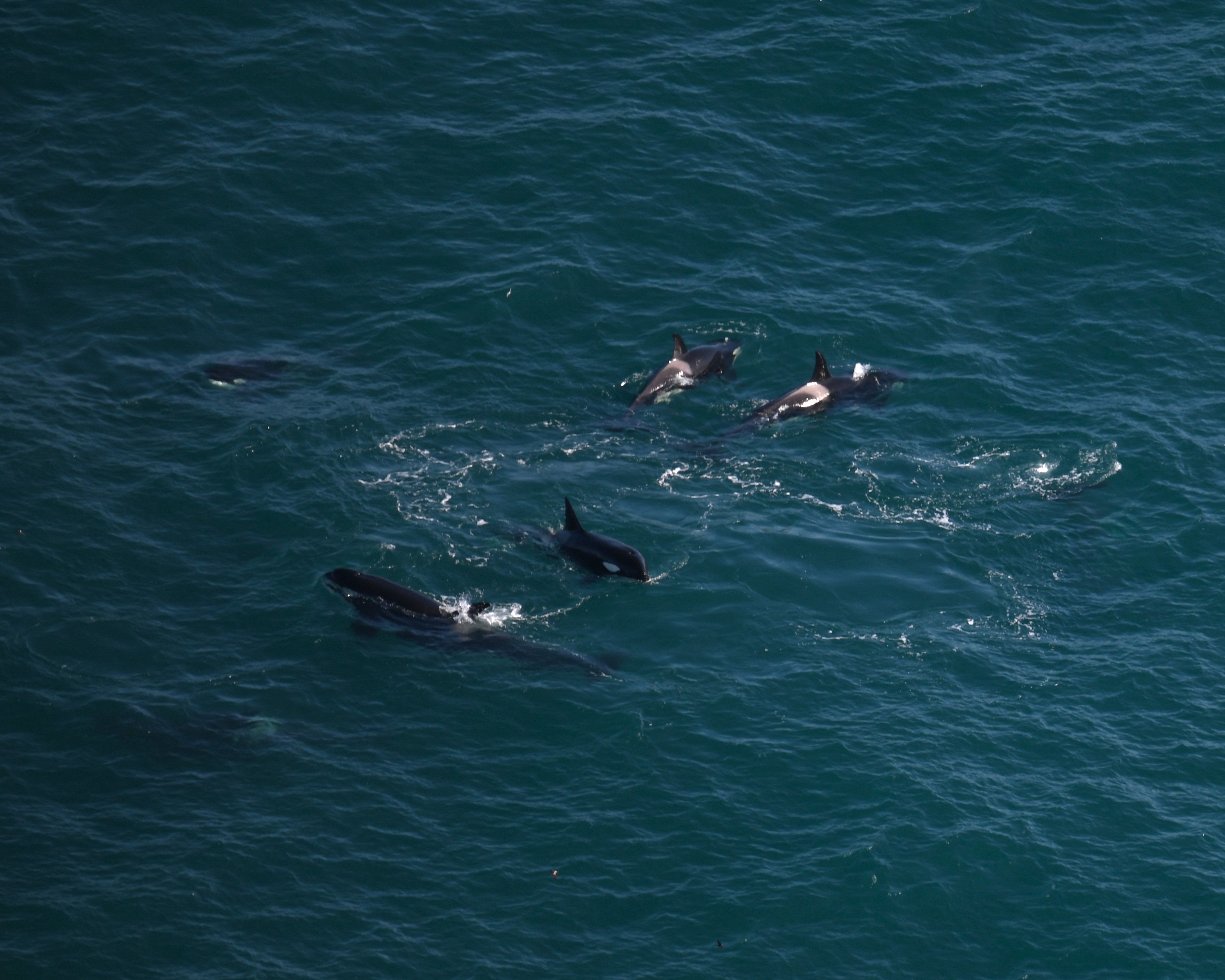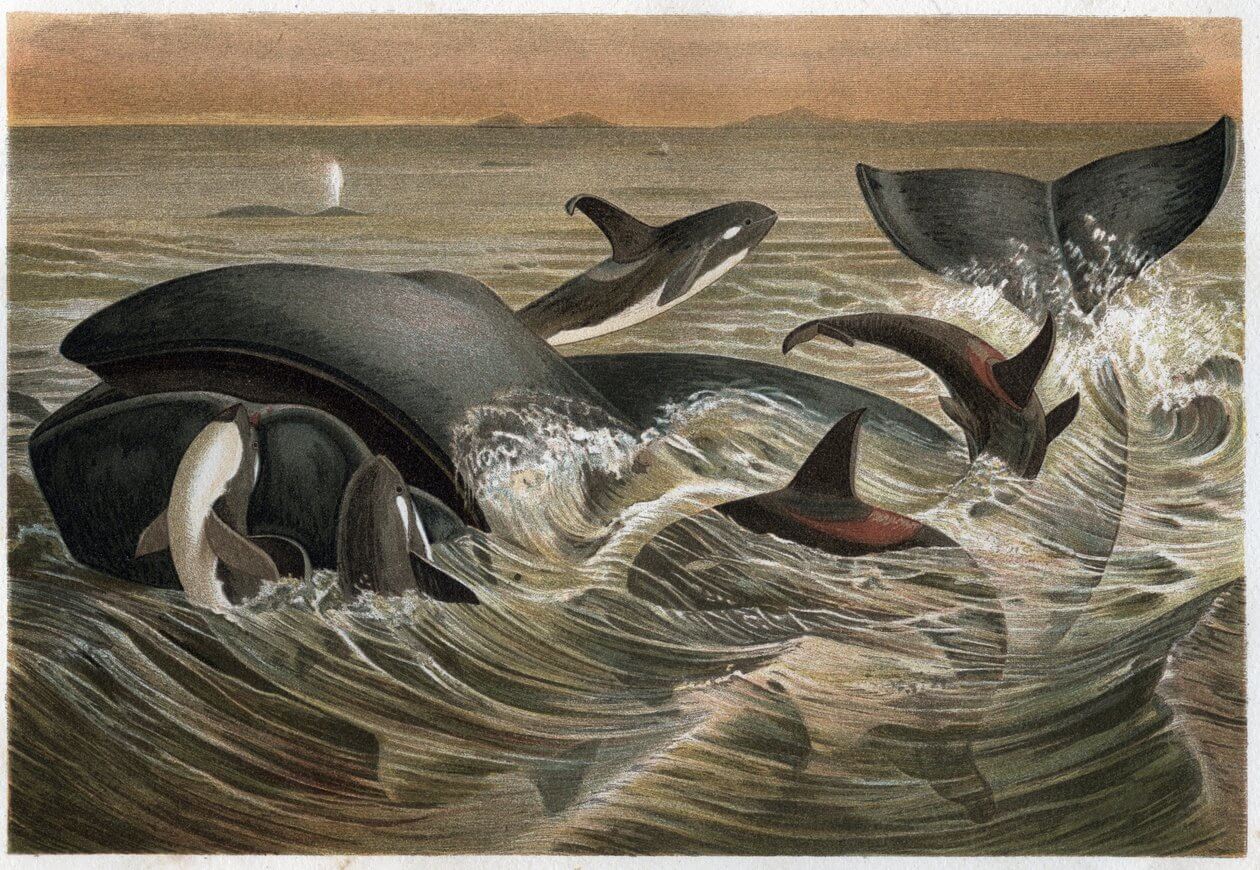Like humans, whales are mammals. They therefore have lungs and breath air at the surface. They are unable to extract oxygen from the water like fish do with their gills. Breathing in whales is “conscious”; the function of breathing in these animals is under the voluntary control of the central nervous system (CNS). Whales choose to come up to the surface to breath in the same way that we make a conscious decision to eat so that we don’t starve!
Unlike humans who continue to breath even when they’re in a deep sleep, cetaceans must remain partially awake in order to maintain a state of alertness to control their breathing. Studies conducted on dolphins have demonstrated that only half of the brain “rests”, while the other half ensures this alertness. This technique also allows the brain to remain on the lookout for predators, obstacles and other animals in the area. The cetacean also maintains control of its blowhole, the orifice on the top of its head that is the equivalent of our nostrils. This fold of skin is voluntarily opened by the animal, which contracts the muscles around its blowhole whenever it takes a breath. The two hemispheres of the brain alternate periods of rest.
To learn more:
On Whales Online: Sleep





